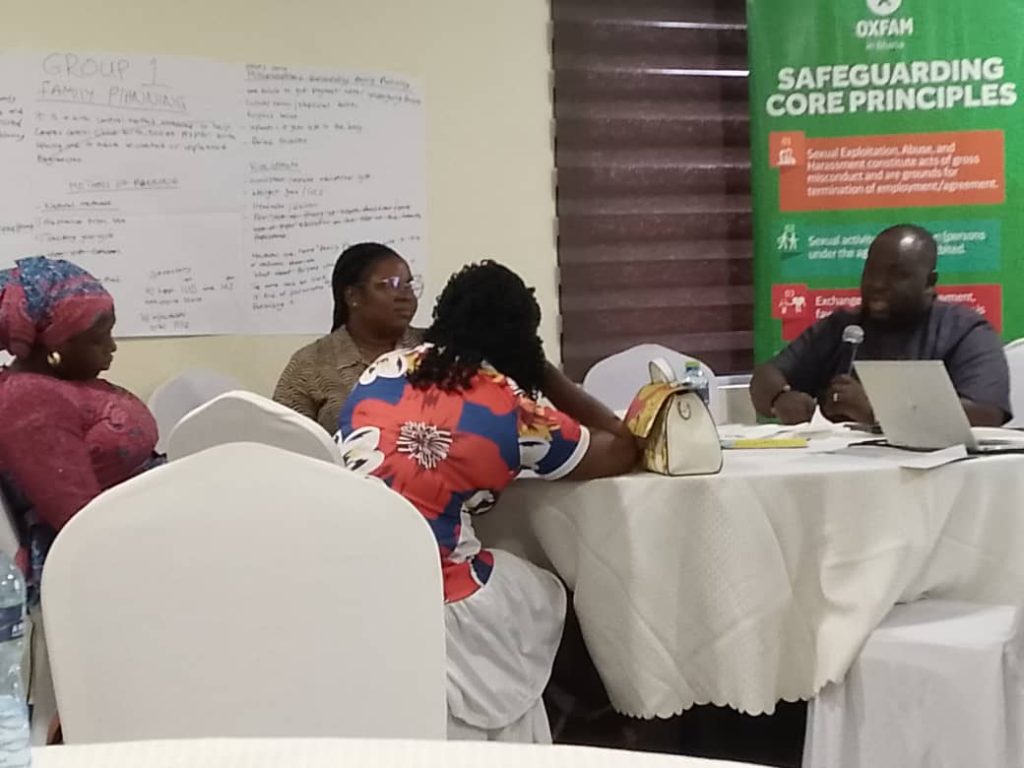Fatima Anafu Astanga
Bolgatanga, March 19, GNA – Ms Fauziatu Abdul-Rahman, the Project Co-ordinator of Power to Choose (P2C), Oxfam Ghana, an International Nongovernmental Organisation, has reiterated the need to make the right choices facilitated by the availability of information to bridge the gender gap.
She said making the right choices related to family planning, maternal health care, prevention and treatment of sexually transmitted infections, and gender-based violence were key and the panacea to bridging the gender gap.
Therefore equipping adolescent girls and young women with the right information on their sexual and reproductive health life will help them make informed choices to enhance their sexual life and wellbeing.
As Ghana marched up to attaining the agenda 2030 of the Sustainable Development Goals (SDGs), which emphasise the involvement of everybody, it was critical to increase services related to Sexual and Reproductive Health Rights (SRHR).
Madam Rahman made the call in Bolgatanga at a three-day training for 16 selected journalists from eight MMDAs on effective and accurate reporting on sexual and Reproductive Health Rights.
It is a project Oxfam is implementing in 37 communities in Ghana, dubbed: “Power to Choose(P2C).”
The training is also to help the journalists understand the key concepts related to SRHR, some ethical considerations involved in reporting sensitive SRHR issues, and increase the visibility of activities of implementing partners in catchment areas.
Mr Archibald Adam, the Lead Communications Officer of Oxfam, in an interview with the Ghana News Agency on the role of the media, said Oxfam believed in the power of journalists as agents of change.
Therefore, with the right tools, good stories could be churned out from well-informed points of view to aid their writing, he said.
“ It is about getting people well informed and making the right choices and getting to know the right services available so that in the event that they need them, they can get them,” Mr Adam said.
He noted that SRHR also entailed child spacing, fertility, maternal mortality, infant health, adolescent reproductive health, and gender-based violence issues around contraception.
“We would like journalists to write on these issues hence equipping participants with the training to help them to do well in their reportage” he said.
Mr Adam advised the public not to see SRHR as a health issue but a developmental problem.
“If these girls are not supported, they will become teen mothers and while some will not be able to go back to school, some in the course of delivery may lose their lives since their physical bodies are not prepared for childbirth,” he noted.

If the girls were not able to manage their emotions of taking care of a child, their lives would rather become a burden for families, and society.
“The decision of a girl wanting to get pregnant by having unprotected sex has become a national issue and if care is not taken will increase the phenomena as their children will do same, therefore increasing the cycle of poverty”, he said.
The P2C is a seven-year Global Affairs Canada-funded project being implemented in seven countries across Africa, Latin America and the Middle East.
Its objective is to increase access to reproductive health information and services for adolescent girls and young women aged 10-24 years.
In Ghana the project catchment areas are in five regions; Northern, North East, Bono East, Central and Greater Accra, and seven Metropolitan Municipal and District Assemblies (MMDAs) including Ashaiman, Kasoa, Cape Coast, Techiman, Sene East Saveligu, Sagnarigu and West Mamprusi.
GNA